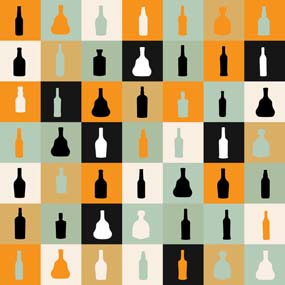 The topic of diabetes and alcohol is a bit like the monster in the corner. No one really likes to talk about it. For many, including myself, a glass of good red wine is one of life’s small pleasures. However, do the risks associated with alcohol and diabetes outweigh this simple pleasure? Are there any advantages to drinking alcohol?
The topic of diabetes and alcohol is a bit like the monster in the corner. No one really likes to talk about it. For many, including myself, a glass of good red wine is one of life’s small pleasures. However, do the risks associated with alcohol and diabetes outweigh this simple pleasure? Are there any advantages to drinking alcohol?
First, let’s focus on the positive and look at a potential advantage of alcohol and diabetes. One study has found that drinking red wine may help control blood glucose levels.
In 2008, University of Massachusetts at Amherst scientists found that the moderate consumption of red wine after a meal slowed the absorption of glucose into the blood. This is important because there is often a spike in blood glucose levels after meals.
Over time, these blood sugar spikes can lead to an increase in diabetic complications, such as eye, nerve and cardiovascular damage. If these spikes can be reduced or eliminated, then the risk of developing complications can also be reduced.
The antioxidants in the red wine, specifically polyphenolics, are attributed with this effect. In the interest of full disclosure, the same study also found that green tea had the same effect.
DISADVANTAGES
 Now, let’s look at the disadvantages of the diabetes and alcohol combination. Unfortunately, there are numerous significant risks to drinking alcohol, particularly for diabetics. The big disadvantage is that alcohol can dangerously lower your blood sugar, resulting in hypoglycemia. This is particularly the case if you drink on an empty stomach. Why?
Now, let’s look at the disadvantages of the diabetes and alcohol combination. Unfortunately, there are numerous significant risks to drinking alcohol, particularly for diabetics. The big disadvantage is that alcohol can dangerously lower your blood sugar, resulting in hypoglycemia. This is particularly the case if you drink on an empty stomach. Why?
Well, your liver is responsible for releasing stored glucose into your body for fuel. The liver is also responsible for clearing or processing the alcohol from your system.
Alcohol is viewed as a toxin or poison by the body, thus the liver prioritizes the elimination of the alcohol instead of providing the body with needed glucose. Without additional glucose, blood sugar levels can drop dangerously. If you take insulin or other diabetes medication, then the result can be worse.
This situation is even more dangerous because the symptoms of hypoglycemia can match those of being drunk. These symptoms can include dizziness, disorientation and sleepiness.
Another key disadvantage is that, over time, alcohol can also damage your liver. Lastly, excessive drinking can also cause you to gain weight, making it more difficult to control your diabetes. Think Beer Belly.
GUIDELINES FOR SAFE DRINKING
So, how do you have a drink from time to time without being scared to death of causing yourself damage? Here are some guidelines:
- Consult your doctor. Every person is different when it comes to diabetes and alcohol. Some diabetics can have a drink from time to time while others should never touch the stuff.
- Never drink on an empty stomach.
- Drink in moderation. The ADA recommends no more than 1 drink a day for women and 2 drinks for men. Sorry ladies.
- Drink light beer or dry wine. These have less sugar, so stay away from the Boone’s Farm.
- Avoid Sugary Mixtures. For example, use diet coke instead of regular coke as a mixture)
SOURCES:
American with Diabetes Association, Diabetes.org (accessed January 2008).
University of Massachusetts Amherst, Red Wine, Tea, May Help Regulate Blood Sugar In Type 2 Diabetics ScienceDaily.com (accessed April 2008).
By Erich Schultz – Last Reviewed February 2013.
